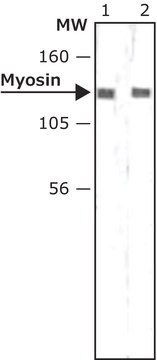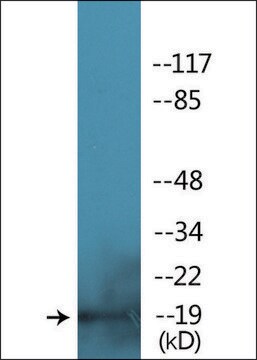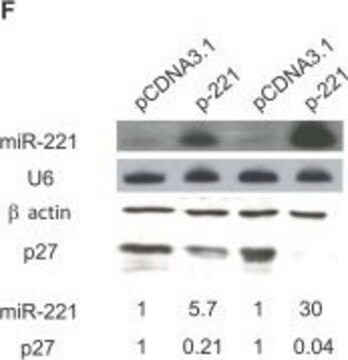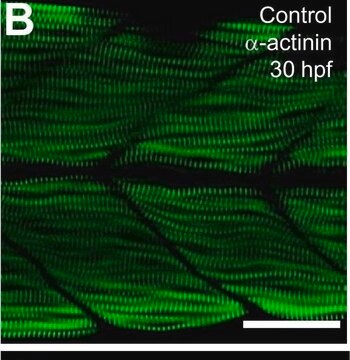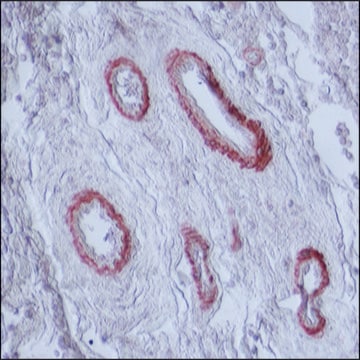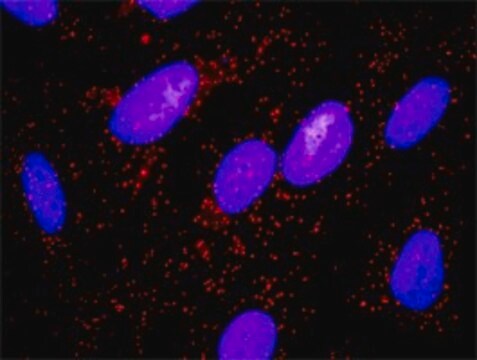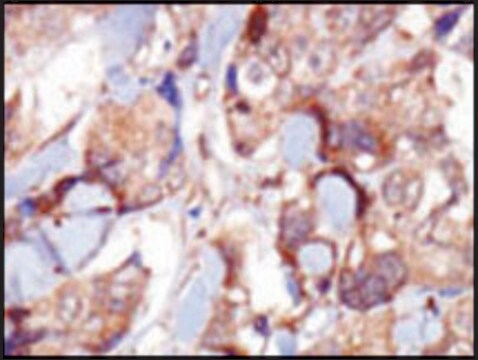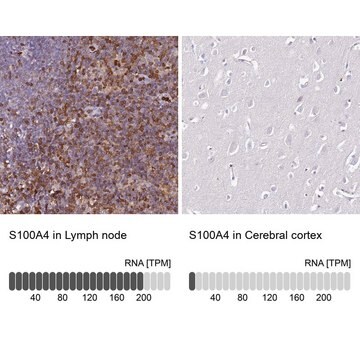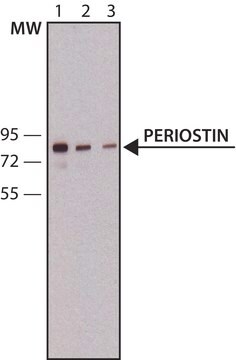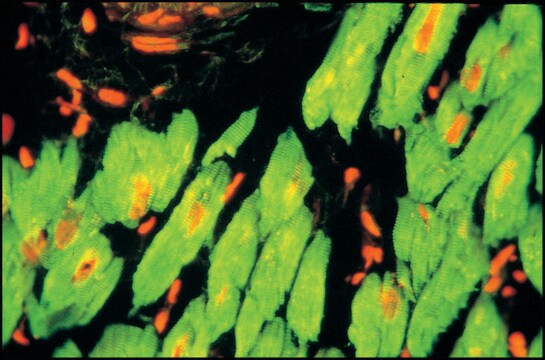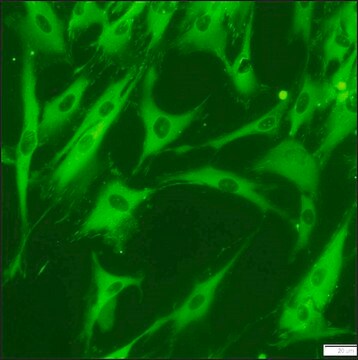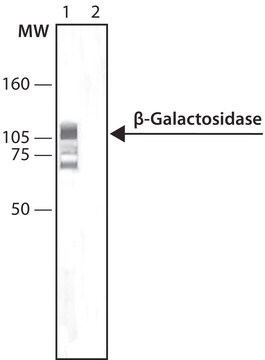M4401
Monoclonal Anti-Myosin (Light Chains 20 kDa) antibody produced in mouse
clone MY-21, ascites fluid
Sinonimo/i:
Myosin Light Chain Antibody, Myosin Light Chain Antibody - Monoclonal Anti-Myosin (Light Chains 20 kDa) antibody produced in mouse
About This Item
Prodotti consigliati
Origine biologica
mouse
Livello qualitativo
Coniugato
unconjugated
Forma dell’anticorpo
ascites fluid
Tipo di anticorpo
primary antibodies
Clone
MY-21, monoclonal
PM
antigen 20 kDa
contiene
15 mM sodium azide
Reattività contro le specie
human, chicken, pig, bovine, rabbit
tecniche
indirect immunofluorescence: 1:200 using human or chicken fibroblasts
western blot: suitable using denatured and reduced myosin of muscle
Isotipo
IgM
N° accesso UniProt
Condizioni di spedizione
dry ice
Temperatura di conservazione
−20°C
modifica post-traduzionali bersaglio
unmodified
Informazioni sul gene
chicken ... MYLK2(396356)
human ... MYLK2(85366)
Descrizione generale
Specificità
Immunogeno
Applicazioni
- western blot analysis
- fluorescence immunohistochemistry
- confocal microscopy
Azioni biochim/fisiol
Stato fisico
Stoccaggio e stabilità
Esclusione di responsabilità
Non trovi il prodotto giusto?
Prova il nostro Motore di ricerca dei prodotti.
Codice della classe di stoccaggio
10 - Combustible liquids
Classe di pericolosità dell'acqua (WGK)
nwg
Punto d’infiammabilità (°F)
Not applicable
Punto d’infiammabilità (°C)
Not applicable
Scegli una delle versioni più recenti:
Possiedi già questo prodotto?
I documenti relativi ai prodotti acquistati recentemente sono disponibili nell’Archivio dei documenti.
I clienti hanno visto anche
Il team dei nostri ricercatori vanta grande esperienza in tutte le aree della ricerca quali Life Science, scienza dei materiali, sintesi chimica, cromatografia, discipline analitiche, ecc..
Contatta l'Assistenza Tecnica.